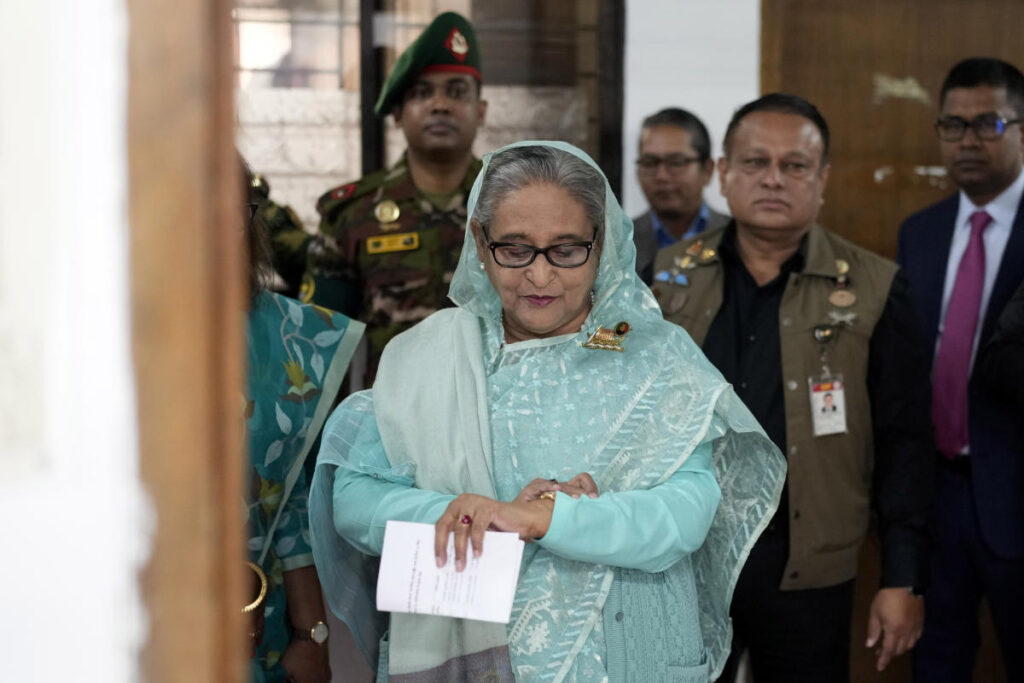In a significant political development, Bangladesh has formally requested India to extradite former Prime Minister Sheikh Hasina, who fled to New Delhi amid nationwide protests resulting in her ousting. This announcement was made by Md Touhid Hossain, the foreign affairs adviser for Bangladesh, who confirmed that a diplomatic note had been sent to India’s Foreign Ministry regarding Hasina’s extradition. The request underscores the heightened tensions and political turmoil that have engulfed Bangladesh following Hasina’s departure, as her 15-year tenure came to an abrupt end due to widespread civil unrest that left a lasting impact on the country’s socio-political landscape.
Sheikh Hasina’s flight to India in August followed massive protests, which were marked by violence and led to hundreds of casualties, with many protesters severely injured. This upheaval was not only a response to Hasina’s government but also symptomatic of broader discontent within the Bangladeshi populace regarding governance and human rights violations. Hasina is currently facing multiple court cases in Bangladesh concerning the violence during these protests, including serious charges related to crimes against humanity. The International Crimes Tribunal in Dhaka has already issued arrest warrants against her as well as her close aides, further complicating her return to Bangladesh.
Further complicating the situation, the current administration, led by interim leader Muhammad Yunus, has indicated a firm stance against Hasina’s previous government. Yunus has stated that his interim government aims to bring Hasina and her officials to justice for their alleged role in the violent suppression of the protests. In this context, Yunus has not only emphasized the importance of seeking justice for the victims but has also extended an invitation to the United Nations to assist in an investigation into the events surrounding the uprising and the ensuing violence.
The request for extradition from Bangladesh is of considerable significance as it signals a step towards potential judicial accountability for Hasina, who was once a firmly entrenched power in the nation. With tensions running high, both within Bangladesh and in its relationship with India, the situation has garnered international attention, as the prospect of her extradition could set a precedent for political accountability in the region. Moreover, India’s response to this request will likely have ramifications for its diplomatic relations with Bangladesh, as it navigates its role in the political turmoil of its neighboring country.
On the other hand, Hasina has publicly called for an independent investigation into the incidents surrounding the protests, suggesting that the death toll may have involved parties outside the security forces. This statement not only reflects her attempt to navigate the accusations against her but also serves as an implicit critique of the handling of the protests by the security agencies. However, the official numbers indicate that over 750 people lost their lives, pointing to the high level of violence that occurred during the unrest and the challenges facing any narrative that seeks to mitigate responsibility.
As both governments prepare to engage in diplomatic discussions regarding this extradition request, the focus will remain on the implications for human rights, justice, and political stability in Bangladesh. The outcome of this situation will not only affect Sheikh Hasina but also serve as a wider indicator of the political climate in Bangladesh and its governance structures moving forward. The international community is likely to watch closely as these events unfold, particularly with the involvement of organizations like the United Nations and Interpol in the efforts to address the significant human rights issues raised during the recent uprising.

